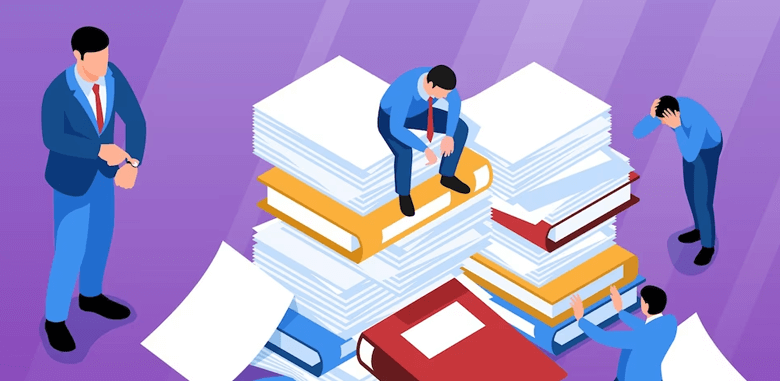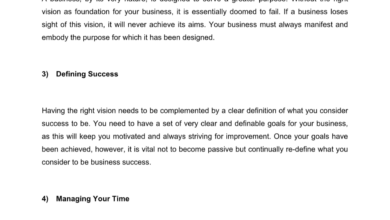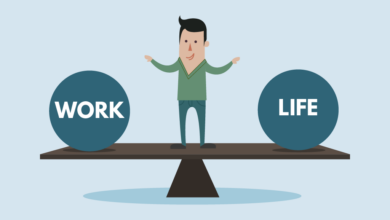
10 Critical Signs You Are Being Overworked
10 Critical Signs You Are Being Overworked – we’ve all been there, pushing ourselves to the limit, sacrificing sleep and personal time for the sake of work. But what happens when that hustle becomes a constant state of being?
When the lines between work and life blur, and your body and mind start sending out SOS signals? It’s time to take a step back and recognize the warning signs of overwork.
Overwork isn’t just about long hours; it’s about the cumulative impact of stress, pressure, and the constant feeling of being overwhelmed. It can manifest in physical, mental, and emotional ways, impacting your health, relationships, and overall well-being. This article will delve into the ten most critical signs that you’re pushing yourself too hard, helping you identify potential problems and take steps towards a healthier work-life balance.
Physical Signs of Overwork
Overworking can take a toll on your physical health. Prolonged stress puts your body under constant strain, leading to various physical symptoms. Recognizing these signs early can help you take steps to manage your workload and prioritize your well-being.
Fatigue and Exhaustion
Chronic fatigue is a common symptom of overwork. When you’re constantly pushing yourself, your body doesn’t have time to recover. This can lead to persistent tiredness, even after getting enough sleep. You might find yourself struggling to focus, making mistakes, or feeling drained throughout the day.
Headaches and Migraines
Stress can trigger headaches and migraines. The constant tension and pressure can lead to muscle tightness in your neck, shoulders, and head, causing pain. Headaches can also be a sign of dehydration, which is common when you’re overworked and forget to drink enough water.
Recognizing the signs of burnout is crucial, especially when you’re passionate about your work. Feeling constantly exhausted, irritable, and lacking motivation are all red flags. It’s important to remember that success isn’t about working yourself to the bone; it’s about developing a healthy mindset, like the ones outlined in this fantastic article on 11 mindset traits of successful entrepreneurs.
By prioritizing your well-being and adopting a balanced approach, you’ll be better equipped to achieve your goals without sacrificing your health and happiness.
Digestive Issues
Stress can disrupt your digestive system. You might experience symptoms like heartburn, indigestion, constipation, or diarrhea. The stress hormones released by your body can interfere with the normal functioning of your digestive tract.
Muscle Tension and Pain
Prolonged sitting or standing, combined with stress, can lead to muscle tension and pain. You might notice stiffness in your neck, shoulders, back, or legs. This pain can worsen if you’re not engaging in regular physical activity.
Weakened Immune System
When you’re overworked, your immune system can become weakened. This makes you more susceptible to colds, flu, and other illnesses. The stress hormones released by your body can suppress your immune response, making it harder for your body to fight off infections.
Mental and Emotional Exhaustion

Overwork doesn’t just affect your body; it takes a heavy toll on your mind and emotions. The constant pressure and demands can leave you feeling drained, anxious, and struggling to cope.
The Impact of Overwork on Mental and Emotional Well-being
The mental and emotional exhaustion that comes with overwork can manifest in various ways. It can lead to:
- Increased Anxiety:The constant pressure of deadlines, expectations, and the feeling of being overwhelmed can trigger anxiety. This can manifest as racing thoughts, difficulty sleeping, and a sense of dread.
- Irritability and Mood Swings:Feeling constantly stressed and tired can make you more easily irritated and prone to mood swings. Even minor inconveniences can feel like major setbacks.
- Difficulty Concentrating:Your brain needs rest and rejuvenation to function properly. When you’re overworked, your ability to focus and concentrate suffers. This can impact your work performance and lead to errors.
- Burnout:Prolonged overwork can lead to burnout, a state of emotional, physical, and mental exhaustion. It can be characterized by feelings of cynicism, detachment, and a lack of motivation.
Behavioral Changes
Overwork can manifest itself not only in physical and mental symptoms but also in noticeable shifts in behavior. These changes often go beyond simple fatigue and can significantly impact your daily life, relationships, and overall well-being.
Changes in Sleep Patterns
When you’re overworked, your sleep patterns can be disrupted. This can manifest in various ways, including difficulty falling asleep, waking up frequently during the night, or feeling constantly tired even after getting enough sleep. The constant stress and pressure from work can make it hard to relax and unwind, leading to insomnia or other sleep disturbances.
Sleep deprivation can significantly impair cognitive function, leading to decreased concentration, poor decision-making, and increased irritability.
Social Interactions
Overwork can also affect your social interactions. You might find yourself withdrawing from social events, spending less time with friends and family, or feeling less engaged in conversations. The constant pressure and exhaustion can make it difficult to maintain social connections, leading to feelings of isolation and loneliness.
Feeling constantly drained? Struggling to find time for yourself? These are just a couple of the 10 critical signs you are being overworked. If you find yourself constantly on the go, maybe it’s time to consider a change of pace.
Perhaps exploring a career like online teaching, which offers flexibility and autonomy , could be a good option. Regardless of your career path, remember to prioritize your well-being and avoid burnout, which can lead to serious health consequences.
Social isolation can exacerbate feelings of stress and anxiety, further contributing to the cycle of overwork.
Changes in Personal Interests
Overwork can also lead to a decline in your personal interests and hobbies. You might find yourself neglecting activities you once enjoyed, losing motivation, or simply not having the energy to pursue them. This can lead to a sense of emptiness and a disconnect from your passions, further contributing to feelings of burnout.
Engaging in hobbies and activities you enjoy can help you recharge and maintain a sense of balance in your life.
It’s easy to get caught up in the hustle, especially when you’re passionate about your work. But sometimes, the line between dedication and burnout blurs. If you’re constantly feeling drained, irritable, and struggling to focus, it might be time to take a step back and prioritize your well-being.
This is especially true when you see a cause like reproductive rights facing such intense opposition, as in the article “Will the pro-abortion rights billionaires please stand up?” will the pro abortion rights billionaires please stand up. Ultimately, it’s crucial to recognize the signs of being overworked and make adjustments before it takes a toll on your health and happiness.
| Behavioral Change | Possible Causes |
|---|---|
| Increased irritability and impatience | Stress, fatigue, and lack of sleep |
| Difficulty concentrating and focusing | Cognitive impairment due to sleep deprivation and mental exhaustion |
| Procrastination and avoidance of tasks | Feeling overwhelmed and lacking motivation |
| Increased alcohol consumption or substance abuse | Self-medication to cope with stress and anxiety |
| Neglecting personal hygiene and appearance | Lack of energy and motivation |
Work Performance Declines
Overwork can have a detrimental impact on your productivity and performance, leading to a vicious cycle of decreased output and increased stress. As your body and mind struggle to cope with excessive demands, your ability to function effectively at work suffers.
Decreased Productivity and Performance
When you’re overworked, your brain is constantly in a state of heightened stress, making it difficult to focus and concentrate. This can lead to decreased productivity and performance in several ways. You might find yourself making more mistakes, taking longer to complete tasks, and struggling to meet deadlines.
This is because overwork can lead to cognitive fatigue, making it harder to process information, solve problems, and make sound decisions.
Increased Health Risks
Overworking can have serious consequences for your health, going beyond just feeling tired or stressed. The constant pressure and demands of chronic overwork can take a toll on your body, leading to a range of health problems that can impact your well-being and longevity.
The Connection Between Overwork and Cardiovascular Diseases
Overwork can significantly increase your risk of developing cardiovascular diseases, including heart attacks and strokes. This is primarily due to the stress hormones released during prolonged periods of overwork, which can lead to high blood pressure, elevated cholesterol levels, and an increased risk of blood clots.
These factors put a strain on your heart and blood vessels, increasing the likelihood of heart disease.
The Link Between Overwork and Depression, 10 critical signs you are being overworked
Chronic overwork can also lead to depression. When you’re constantly overworked, you may feel overwhelmed, exhausted, and hopeless. This can lead to a sense of detachment from your work and personal life, making it difficult to find joy and motivation.
The constant pressure and lack of time for self-care can also contribute to feelings of inadequacy and worthlessness.
Overwork and Weakened Immune System
Overwork can compromise your immune system, making you more susceptible to illnesses. The stress hormones released during overwork can suppress your immune system’s ability to fight off infections. This can lead to frequent colds, flu, and other infections.
Table Comparing Health Risks Associated with Different Levels of Overwork
The table below summarizes the health risks associated with different levels of overwork:
| Level of Overwork | Health Risks |
|---|---|
| Mild Overwork | Increased stress, difficulty sleeping, mild fatigue, headaches, irritability. |
| Moderate Overwork | Increased risk of cardiovascular diseases, depression, weakened immune system, gastrointestinal problems, muscle aches and pains. |
| Severe Overwork | Significant increase in cardiovascular disease risk, severe depression, burnout, chronic fatigue, autoimmune disorders, increased risk of accidents and injuries. |
Difficulty Disconnecting
The constant pressure of being “on” and the inability to fully disconnect from work are common symptoms of overwork. This persistent connection can blur the lines between work and personal life, leading to a feeling of being constantly available and never truly off-duty.
The Impact of Technology and Communication
Technology has revolutionized the way we work, providing instant access to communication and information. While this offers flexibility and convenience, it also creates a culture of constant connectivity. Emails, instant messaging, and work-related notifications can intrude on personal time, making it difficult to truly switch off.
The constant availability fostered by technology can create a sense of obligation to respond immediately, blurring the boundaries between work and personal life.
Strategies to Establish Healthy Boundaries
Establishing clear boundaries between work and personal life is crucial for preventing burnout and maintaining a healthy work-life balance. Here are some strategies to help you disconnect effectively:
- Set Clear Work Hours:Establish specific work hours and stick to them as much as possible. This helps create a routine and signals to your brain when it’s time to focus on work and when it’s time to relax.
- Limit Work-Related Communication:Turn off work-related notifications on your personal devices during non-work hours. Consider setting specific times for checking emails and responding to messages.
- Create a Designated Workspace:Having a dedicated workspace, even if it’s just a corner of your home, helps separate work from personal life. When you’re in this space, you’re in work mode.
- Engage in Relaxing Activities:Prioritize activities that help you unwind and recharge, such as exercise, hobbies, spending time with loved ones, or simply disconnecting from screens.
- Communicate Your Boundaries:Let your colleagues, clients, and supervisors know about your work hours and expectations for communication. This helps manage expectations and avoid unnecessary interruptions during your personal time.
Feeling Overwhelmed and Hopeless
Feeling overwhelmed and hopeless is a common symptom of overwork. It’s not just about being busy; it’s about feeling like you’re drowning in responsibilities and that you’re unable to keep up. This feeling can stem from a sense of inadequacy and a lack of control over your workload.
The Emotional Impact of Feeling Overwhelmed and Hopeless
Overwork can lead to a range of negative emotions, including:
- Anxiety
- Depression
- Irritability
- Frustration
- Resentment
These emotions can be debilitating and make it difficult to function effectively at work and in your personal life.
The Impact of Overwork on Feelings of Inadequacy and Lack of Control
When you’re overworked, you may start to feel like you’re not good enough. This can be due to the constant pressure to perform, the feeling that you’re always behind, and the inability to meet deadlines. You may also feel like you have no control over your workload and that you’re at the mercy of your employer’s demands.
Examples of How These Feelings Manifest in Daily Life
The feeling of being overwhelmed and hopeless can manifest in various ways:
- Procrastination:You may find yourself putting off tasks that you normally wouldn’t hesitate to do, simply because you feel overwhelmed by the sheer amount of work you have to do.
- Difficulty concentrating:You may find it hard to focus on your work, as your mind is constantly racing with thoughts about all the things you need to do.
- Physical symptoms:You may experience physical symptoms of stress, such as headaches, fatigue, and insomnia.
- Social withdrawal:You may find yourself withdrawing from social activities and spending more time alone, as you simply don’t have the energy or motivation to interact with others.
Neglecting Self-Care
Overwork can easily lead to neglecting self-care, which is essential for maintaining physical, mental, and emotional well-being. When we prioritize work over our own needs, we create a cycle of exhaustion and stress that can have long-term consequences.
Impact of Neglecting Self-Care
Neglecting personal needs like exercise, nutrition, and social connections can have a detrimental impact on our health and overall well-being. When we are overworked, we often sacrifice these essential aspects of our lives, leading to:
- Increased stress and anxiety:When we don’t take time for ourselves, our stress levels can skyrocket, leading to anxiety, irritability, and difficulty concentrating.
- Physical health problems:Neglecting exercise and healthy eating habits can contribute to weight gain, sleep disturbances, and an increased risk of chronic diseases like heart disease and diabetes.
- Weakened immune system:Chronic stress and lack of sleep can weaken our immune system, making us more susceptible to illnesses.
- Social isolation:When we prioritize work over social connections, we can become isolated and lonely, which can negatively impact our mental health.
Benefits of Self-Care Practices
Self-care practices can help improve our well-being and reduce the effects of overwork. Engaging in activities that nourish our body, mind, and spirit can help us manage stress, improve our mood, and enhance our overall quality of life.
- Exercise:Regular physical activity can reduce stress, improve sleep, and boost our mood. Even a short walk or a quick workout can make a difference.
- Healthy diet:Eating a balanced diet rich in fruits, vegetables, and whole grains can provide our bodies with the nutrients they need to function optimally. Avoiding processed foods and sugary drinks can help us feel more energized and focused.
- Sleep:Getting enough sleep is crucial for our physical and mental health. Aim for 7-8 hours of quality sleep each night to allow our bodies and minds to rest and recharge.
- Social connections:Spending time with loved ones, connecting with friends, and engaging in social activities can reduce stress and loneliness, improving our mood and overall well-being.
- Mindfulness and relaxation techniques:Practicing mindfulness techniques like meditation or deep breathing exercises can help us manage stress, improve focus, and promote a sense of calm and peace.
- Hobbies and interests:Engaging in activities we enjoy can help us de-stress, boost our creativity, and provide a sense of purpose and fulfillment.
Difficulty Saying No
Saying no can be challenging, especially when you’re already feeling overwhelmed. It’s easy to feel obligated to take on more, fearing that saying no will lead to disappointment or missed opportunities. However, this can lead to a vicious cycle of overwork and burnout.
Setting Boundaries
Setting boundaries is crucial for maintaining a healthy work-life balance. It allows you to prioritize your time and energy, preventing you from taking on more than you can handle. When you set boundaries, you are essentially communicating your limits and expectations.
“Setting boundaries is not about being selfish; it’s about taking care of yourself so you can take care of others.”
Examples of assertive communication techniques for setting boundaries include:
- Directly and calmly state your limits: “I’m already committed to several projects, so I can’t take on any more at this time.”
- Offer alternative solutions: “I can’t take on that project right now, but I could assist with [alternative task] if you’d like.”
- Use “I” statements: “I feel overwhelmed with my current workload and need to focus on completing these tasks first.”
Loss of Passion and Motivation: 10 Critical Signs You Are Being Overworked
When you’re constantly overworked, it’s easy to lose sight of what you love about your job. The joy and excitement you once felt can fade away, leaving you feeling drained and unfulfilled. This can lead to a decline in your overall job satisfaction, making it difficult to find meaning in your work.
The Impact of Feeling Unfulfilled and Drained
Feeling unfulfilled and drained can significantly impact your job satisfaction. It can lead to:* Reduced productivity:When you’re not passionate about your work, it’s hard to stay motivated and focused. This can lead to decreased productivity and a decline in the quality of your work.
Increased stress and anxiety
Feeling unfulfilled and drained can contribute to increased stress and anxiety. This can negatively impact your mental and physical health.
Difficulty concentrating
It’s hard to concentrate on your work when you’re not feeling engaged. This can lead to errors and mistakes, further contributing to stress and frustration.
Increased absenteeism
You may find yourself calling in sick more often or feeling the need to take more breaks throughout the day.
Desire to leave your job
Feeling unfulfilled and drained can lead to a desire to leave your job, even if you enjoy the work itself.
Strategies to Rekindle Passion and Find Meaning in Work
It’s important to find ways to rekindle your passion and find meaning in your work. Here are some strategies:* Identify your values:Take some time to reflect on what’s important to you in your work. What are your core values? What are you passionate about?
Set realistic goals
Don’t overload yourself with too many tasks or deadlines. Set realistic goals that you can achieve without feeling overwhelmed.
Take breaks
Make sure to take regular breaks throughout the day to recharge and avoid burnout.
Seek support
Talk to your manager, colleagues, or a mentor about your feelings. They may be able to offer support or advice.
Find a new challenge
If you’re feeling unfulfilled in your current role, look for opportunities to take on new challenges or projects that align with your values and interests.
Focus on your strengths
Identify your strengths and find ways to utilize them in your work.
Connect with your purpose
Reflect on why you do what you do. How does your work contribute to something bigger than yourself?
Celebrate your successes
Take the time to acknowledge and celebrate your accomplishments, no matter how small they may seem.
Seek professional help
If you’re struggling to rekindle your passion and find meaning in your work, consider seeking professional help from a therapist or counselor.
Conclusion
Recognizing the signs of overwork is the first step towards reclaiming your well-being. It’s about listening to your body and mind, setting boundaries, and prioritizing self-care. Remember, you’re not a machine; you’re a human being with needs and limits. By understanding the signs of overwork and taking action, you can create a more sustainable and fulfilling life, both professionally and personally.






